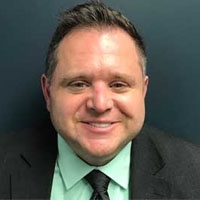Yorktown Collection Lawyer, Indiana
Donald Wayne Mcinnes
✓ VERIFIEDDivorce & Family Law, Collection, Estate, Real Estate, Personal Injury
Don has been exclusively practicing community association law across Indiana for almost a decade. He is a member of Community Associations Institute ... (more)
Mark R. Wenzel
Business Organization, Collection, Commercial Bankruptcy, Bankruptcy
Status: In Good Standing
C. Daniel Motsinger
Corporate, Collection, Commercial Bankruptcy, Bankruptcy
Status: In Good Standing
Martha R. Lehman
Collection, Commercial Bankruptcy, Bankruptcy Litigation, Bankruptcy
Status: In Good Standing
Timothy J. O'Connor
Corporate, Banking & Finance, Collection, Bankruptcy
Status: In Good Standing Licensed: 32 Years
Bradley S. Fuson
Business Organization, Commercial Banks, Banking & Finance, Collection
Status: In Good Standing Licensed: 38 Years


